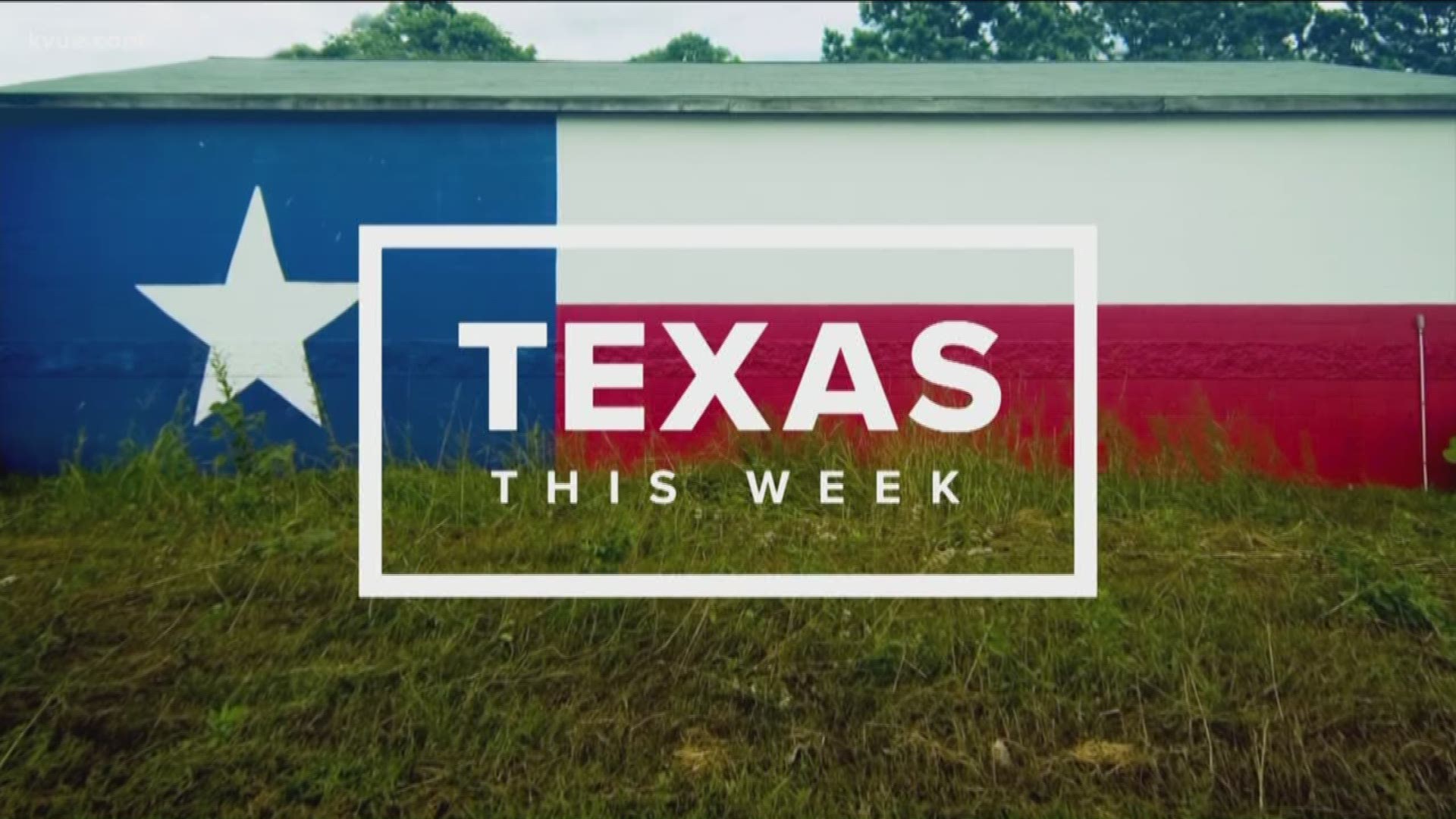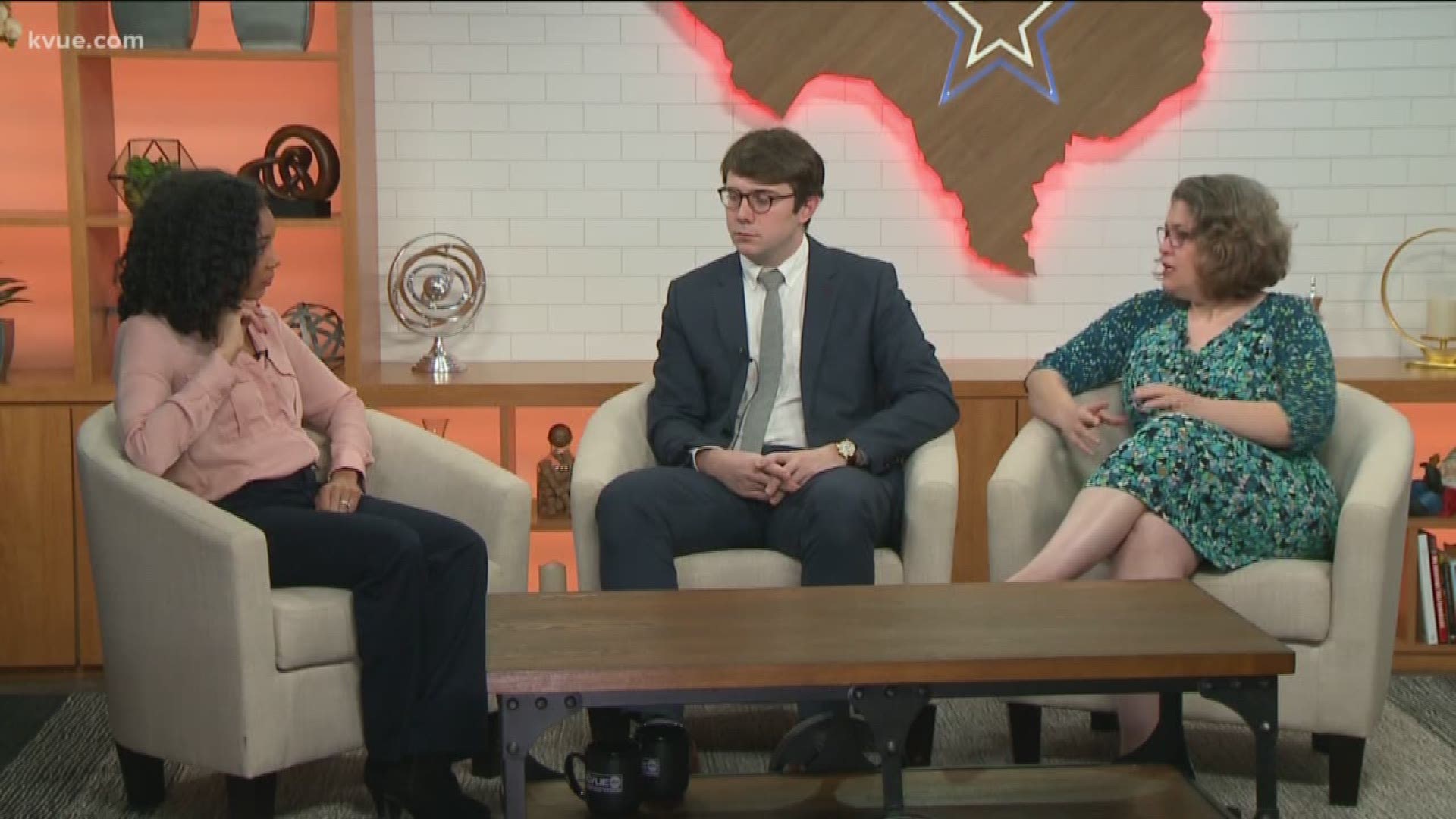AUSTIN — This week, KVUE's news partners at the Austin American Statesman released Unwatched, a year long investigation into the lack of oversight in day cares across Texas. They found some of the most vulnerable Texans are left neglected, abused, and in some cases, dead. In Texas This Week, Ashley Goudeau sits down with two of the journalist who worked on the investigation, Andrea Ball and Sean Walsh.
Ashley Goudeau: First and foremost, tell us a little bit about the investigation and what prompted it.
Andrea Ball: "So, we had been covering a trial in Williamson County that had to do with abuse at a daycare. And, some of the things that were happening in that daycare were very strange, just in terms of, there weren't, kids weren't being monitored properly. They were sleeping all over the place, kids were going and doing all sorts of stuff. And so, we were wondering if that was a common thing. And so we started to basically ask questions about what was going on in day cares."
Goudeau: That case just seemed so disturbing.
Ball: "Right. Well what was interesting about that case was not just that the child passed away, which was bad enough. But when you looked at the circumstances around it, there were too many kids there. They were sleeping all over the house and couldn't be monitored properly. There were people who hadn't been subject to background checks, coming in and out of the house and so it made you wonder about the overall safety of the operation."
The American-Statesman investigation uncovered since 2007, 90 children have died as a result of abuse or neglect in day cares and hundreds of others have suffered serious injuries. More often than you may realize, children are molested, abused and neglected in day cares with long histories of violations. Plus, illegal day cares are rampant in Texas and the state unit designed to shut them down was dismantled.
Goudeau: Sean, talk to me a little bit about the process. This was a year long investigation so what all did you guys have to do?
Sean Walsh: "A lot of the early steps were just building data. So, requesting data from the state on inspections of day cares, trying to put that in a form that we could actually analyze it in, because it's a little weird when it comes from the state. Making records requests, tracking down people who had been involved in some of these cases, several of which we ended up highlighting, some really tragic cases. And, just trying to learn as much as we can about the subject. Our investigation touched on a lot of different areas involved with daycare and it wasn't just focused on one aspect."
Goudeau: One of the things that's interesting is in your search for data, you guys actually got into a little bit of a legal fight, right. Talk to me about that.
Walsh: "Yeah so, we wanted to know how the state determines whether deaths in day cares are caused by abuse or neglect, or whether they rule that it's just an accident or something that you can't prevent medically. And so we requested all of the state's investigations for deaths. And, they said we can't have them and they didn't really give us a response. We thought that they weren't following the requirements of the Public Information Act which lays out deadlines for responding to people who request records. And finally it got so strange really, their response or lack of response, that we had our lawyer look at it and we sued. After we sued, the agency went to the Attorney General's office and sought permission to withhold those records, which is what they should have done in the first place. The AG's office, came back and said the agency, which is the Department of Family Protective Services, they had violated the Public Information Act. In addition, they sided with us on a couple of the key legal issues involved in what records to release. So, we've got some of the records. We're looking at possibly a court date later this month to go for the rest of the records."
Goudeau: The Department of Family Protective Services has already had a lot of criticism over the years, especially as of late when we saw children dying in foster care or cases like Colton Turner's where his parents had a CPS case, but the child died in their care. So do you feel like they just did not want you guys to have this information?
Ball: "I've never had that experience with them to be honest with you. I mean I know that a lot of people have different experiences with different agencies and feel like there's always that push and pull of who gets what information. I generally don't have that experience with them. To be honest with you, I think that there was just a, in their minds, a legitimate difference of opinion. They felt like we couldn't have it and so they were not going to budge on it."
Walsh: "And they were helpful in other parts of this investigation and weren't always withholding records. It was just so strange in this one case and such an important part of the project."
Goudeau: In the piece, you profiled and talked to parents across the state who had to deal with some of the most tragic cases. For our viewers at home to understand just how big of an issue this is, I want to know which case stands out to you both the most.
Walsh: "I spent a lot of time reporting on the case of a baby named Jaxson Reed in Killeen. He died at one of these illegal day cares and I attended the trial of the daycare operator. So, it was a woman in her 20s or 30s. And it was sad I think for all sides, because, you know, the Reed family, the Partridge/Reed family, lost their child and also, for two years, the family of the daycare operator is gonna lose their mother. She has four kids, her daughter, her father was at the trial. And this was you know tragic, and yes she was at fault and was found guilty and she even spoke to me outside the courtroom and sort of admitted what went on. It was sad because she didn't know that she should have been doing something differently. If she could have been trained, then this didn't have to happen. It's not like she was intending to harm the child, in fact she had a special interest in the child and before the incident occurred, the mother of the child thought 'man, she really is an excellent caretaker, she takes a special interest in Jackson.' So that one really affected me because it seemed like there was no bad guy. It was a tragic mistake that was caused by negligence but it could have been avoided."
Ball: "But sometimes there is a stereotypical bad guy. Whereas there was a case that I wrote mostly about which was a boy named Shane Martinez. Shane was this almost 3 month old baby with these big cheeks, and he was just the sweetest thing and his mom gave us video of him and him laughing and he was just adorable. And so, his mother Shawna Diaz, she needed a place to put her son so she could go back to work at an oil and gas company in Houston. And she found this place and it was a licensed daycare. She had only been sending him there a handful of times when she gets this phone call from someone from the daycare saying 'Your child is not breathing, he's going to the hospital. Get to the hospital immediately.' And she was just blown away like 'what happened?' And so, ultimately, the daycare operator said 'We put him on his back, he went to sleep. We don't know what happened.' And so, the doctors ruled that it was SIDS. But the mom Shawna just did not believe this. She just couldn't understand what happened. So, she filed a lawsuit and she wanted to get answers. And after about year, there was a deposition where the daycare operators admitted that they had lied, that they didn't put the baby on their back which is the safest most recommended way to put a baby to sleep. That they had in fact, despite having training to do the opposite, they had put the baby on his belly at which point he suffocated and choked on his own vomit and blood."
Goudeau: Wow. The good news in all of this is already, we're starting to see some changes because of the investigation that you guys did. Talk to us about that part of it.
Ball: "Yeah, that's really great. We had spoken with the Health and Human Services Commission about the Illegal Childcare Unit. And once we did that, they put in a financial request for the legislature for the upcoming session, that would reinstate the Illegal Childcare Unit, which would be a really great thing. And then they're supported in that request by Senator Kirk Watson who really wants to make sure that that happens. Also, some pending movement possibly, a legislator in Houston has backed up the idea of keeping cameras in all day cares so families can find out what happened."
Goudeau: What do you think was the overall message that you want people to understand about what you uncovered with this investigation?
Ball: "I mean, I think that the message people need to walk away with is just you gotta do your homework because there's so many elements that go into making a good, safe daycare.
We all have to have something that we can afford, something that is convenient, something with people that you can trust. But there are a lot of different elements that the state is sort of falling down on in terms of providing the most protection that they can. So, you need to go to the state website, at the DFPS website and find out how many violations a daycare can have. Because you would think that a lot of violations would mean a daycare gets shutdown, but it doesn't. I mean we found a daycare that had, I think at this point they have 195 violations when the average is nine and they're still running around taking care of kids. So the first thing you need to do is definitely check out that kind of stuff, and then talk to your friends, and do Google searches and do the best that you can to find as much information as you can before you leave your child somewhere."
Walsh: "For parents, I think it's do your homework and we put together, Andrea put together, a great checklist for parents. But for the state, for state officials, for state lawmakers I think it's do your job or make sure that the people who are doing this have what they need to get it done."


